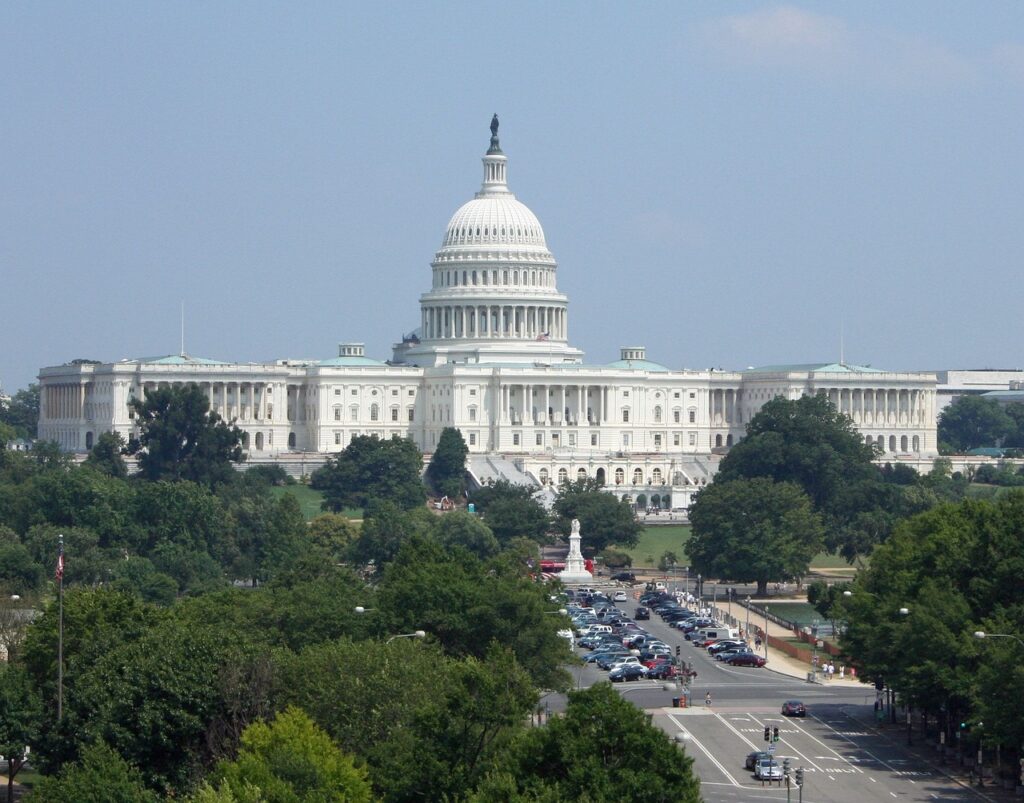On July 4, President Trump signed into law the “One Big Beautiful Bill” Act (OBBBA), a budget reconciliation bill that Congress had passed earlier that week. While the OBBBA impacts a wide array of public policies, from a financial planning perspective, the most significant provisions involve changes to the tax law. In this post, we discuss the changes most likely to impact our clients at PFS, almost all of which will likely lead to a lower tax bill for our clients over the next few years. (Stay tuned for a follow up post—“OBBBA Parents’ Edition”—to be published later this week.)
Tax Brackets. First and foremost, OBBBA extends the relatively new tax brackets that Congress put in place with the Tax Cuts and Jobs Act (TCJA) in late 2017. Absent this provision, the tax brackets would have shifted upward in 2026 when many TCJA changes were scheduled to sunset. (Taxpayers in the 12% bracket would have started paying 15%, those in the 22% bracket would have started paying 25%, etc.) OBBBA makes the current tax brackets permanent.

Standard Deduction. OBBBA also extends (and increases) the generous standard deduction, which had nearly doubled under the TCJA in 2017. OBBBA increases standard deduction by $750 for single filers and $1,500 for married filing jointly, resulting in standard deductions of $15,750 and $31,500, respectively, in 2025. The standard deduction will continue to be indexed for inflation as well.
Bonus Deduction for Seniors. In addition to the higher standard deduction, OBBBA adds a “bonus deduction” for those age 65 and over for tax years 2025 through 2028. This deduction of $6,000 for individuals and $12,000 for married filing jointly is available whether you take the standard deduction or itemize deductions. The bonus deduction does phase out, however, if your Adjusted Gross Income (AGI) exceeds $75k for single filers or $150k for married filing jointly. Once AGI hits $175k (single) and $250k (married filing jointly), the bonus deduction phases out completely.
[NOTE: If you received an email from the Social Security Administration celebrating the fact that nearly 90% of Social Security beneficiaries will no longer pay federal income taxes on their Social Security benefits, this “bonus deduction” is the change to which the SSA was referring. There are no provisions in the OBBBA that directly affect the tax on Social Security, but indirectly, OBBBA will reduce the tax on Social Security benefits since the bonus deduction will reduce taxable income overall for those age 65 and over.]
State and Local Tax (SALT) Deduction. In 2017, the TCJA introduced a $10k cap on the amount of state and local taxes that could be deducted when taxpayers itemize deductions (whether single or married filing jointly). For many taxpayers in states with high income tax rates and/or high property taxes on real estate, this provision significantly reduced the amount of SALT that they could deduct. The OBBBA increases this cap from $10k to $40k starting in 2025 and includes 1% increases for the limit through 2029. Note, however, that the SALT limit is reduced by 30% of any AGI over $500k, and it is scheduled to revert to $10k in 2030.
Charitable Giving Deductions. We have good news and bad news regarding tax breaks for charitable giving. The good news? The OBBBA establishes a permanent below-the-line deduction for cash gifts to charity (which reduces taxable income and is available to those taking the standard deduction). It allows taxpayers to deduct from their income up to $1,000 of cash charitable giving for single filers and up to $2,000 for married filing jointly starting in 2026.
The bad news? Those who deduct charitable donations as part of their itemized deductions now have a hurdle to overcome before they begin deducting gifts from their income. Taxpayers now benefit from a charitable deduction only to the extent that their gifts exceed 0.5% of their AGI. In addition, if taxpayers reach the 37% bracket for ordinary income, their itemized deductions are further reduced— by either 2/37 of the total itemized deductions or the amount by which the taxpayer’s income surpasses the bottom limit of the 37% tax bracket. (The OBBBA permanently suspends, however, the overall limit on itemized deductions, known as the Pease Limitation.)
Estate and Gift Tax Exemption. Similar to the tax brackets established by the TCJA in 2017, the estate and gift tax exemption amount was scheduled to revert back to a lower level starting in 2026, which would have subjected many more estates to taxation. The OBBBA instead increased and extended the estate and gift tax exemption amount. Starting in 2026, the estate and gift tax exemption will be $15 million for individuals ($30 million for married couples) and will be indexed for inflation.
Other Miscellaneous Deductions. The OBBBA includes a number of new deductions for tax years 2025 through 2028. Taxpayers can deduct: up to $10,000 of annual interest on new car loans (for cars with final assembly in the U.S.), up to $25,000 of annual qualified tip income, and up to $12,500 of annual overtime pay. All of these deductions are subject to phase out ranges for high earners, however. The OBBBA also makes permanent the Section 199A deduction, which allows a 20% deduction for qualified business income (and was set to expire this year). Note that on the opposite side, the OBBBA discontinues tax credits for buying or leasing electric vehicles and for making energy-efficient changes to your home.
If you have any questions about how the OBBBA impacts you and your tax planning for the coming years, please do not hesitate to call or email us. Again, we will publish another post focusing on the provisions specifically impacting parents of young children in the coming days, so stay tuned!
If you have any questions about your financial future, we're here to help. Please use this form or feel free to call or e-mail us.
(703) 385-0870

